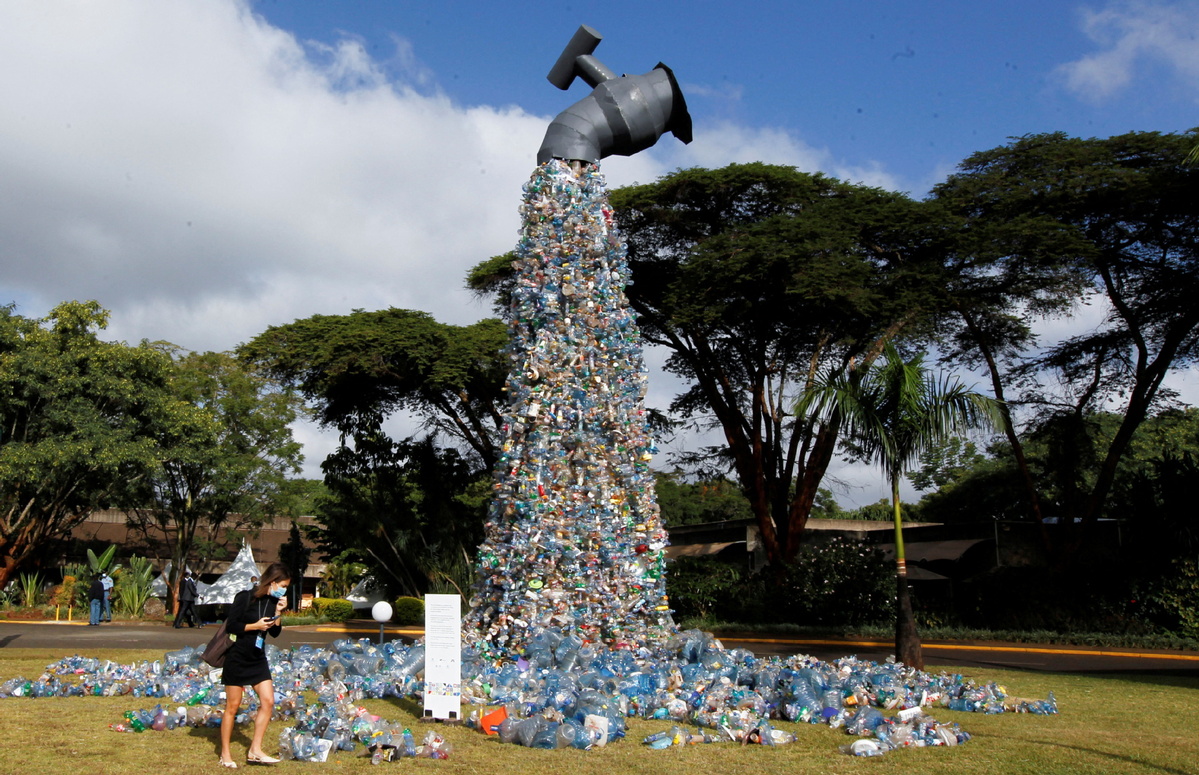Plastic waste test of green sincerity
China Daily | Updated: 2022-03-07 08:18

Heads of state, environment ministers and other representatives from 175 nations, endorsed a historic resolution at the UN Environment Assembly in Nairobi on Wednesday to end plastic pollution, and forge an international legally binding agreement by the end of 2024, according to the United Nations.
The resolution, based on three initial draft resolutions from various nations, establishes an Intergovernmental Negotiating Committee, which will begin its work this year, with the aim of completing the draft of a legally binding agreement by the end of 2024.
That, in turn, is expected to present a legally binding instrument, which would reflect diverse alternatives to address the full life-cycle of plastics, the design of reusable and recyclable products and materials, and the need for enhanced international collaboration to facilitate access to technology, to allow the revolutionary plan to be realized.
All members of the international community have a responsibility to end plastic pollution, but the United States, one of the largest producers of plastic waste, should shoulder more responsibility.
Statistics show that the total amount of plastic waste in the US has increased every year since the 1960s, reaching about 40 million tons, less than half of which has been recycled. But unlike many other large plastic waste producers, the US has dumped its plastic waste in developing countries, such as Thailand, Malaysia and Vietnam, for decades. The US is adept at disguising the practice under various kinds of trade deals, through which it is transferring its environmental protection costs to the developing world. Sometimes the shipment of US plastic waste takes the form of smuggling. If the destination countries ban the "trade", thanks to the rising environmental awareness of their residents, the US will even threaten them with sanctions.
Although the Joe Biden administration has rolled out some green development policies to promote clean energy and reduce emissions, it has never mentioned the disposal of the country's plastic waste.
It has to do with the powerful plastics industry groups which are closely tied to the even more powerful petrochemical industry groups. Any regulation of the plastics industry is likely to trigger a backlash from the petrochemical interests which have strong bargaining power.
In addition, the automotive industry, another backbone industry of the country, also has greater reliance on the plastics industry.
In the past, the US has refused to join a number of international conventions on plastic pollution that will necessarily touch the cheese of its industry groups. The proposed plastic waste agreement is another test of the US' sincerity in pursuing green development.
























